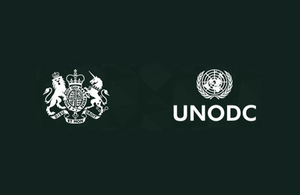UK sets the agenda at UN Anti-Corruption conference in St Petersburg, Russia
The 6th Conference of States Parties (COSP) to the UN Convention Against Corruption (UNCAC) ran in St Petersburg from 2 – 6 November 2015.

UNCAC
With 177 Parties, the UN Convention Against Corruption (UNCAC) is the only legally binding, almost universal UN convention on anti-corruption. The UK works to improve standards of anti-corruption legislation and enforcement among our trading partners internationally through the UNCAC, alongside other conventions. The UN Office on Drugs and Crime (UNODC) in Vienna is the guardian of the UNCAC.
During the Conference, UK representatives:
- Actively promoted the UK government’s anti-corruption message in interventions, side events and on social media (for background see the PM’s speech in Singapore in July 2015)
- Showcased innovative UK work on proceeds of crime work in small Caribbean islands
- Chaired a United Nations Development Programme (UNDP) panel on countries’ experience of ‘corruption-proofing’ their legislative procedures
- Ensured the 2nd cycle of the Convention’s Review Mechanism was launched successfully
- Argued in favour of civil society involvement in the review mechanism of the convention and signed up to the UNCAC Coalition Transparency Pledge
- The COSP also adopted two resolutions on asset recovery, which the UK played an active role in supporting.
What is the UNCAC?
- The UN Convention against Corruption (UNCAC) establishes a comprehensive benchmark for anti-corruption law and instruments.
- The Convention was adopted by the UN General Assembly on 31 October 2003 at United Nations Headquarters in New York, and entered into force on 14 December 2005.
- There are currently (as of November 2015) 140 signatories and 177 parties of UNCAC.
- The Convention focuses on prevention of corruption, with measures directed at both the public and private sectors.
- It requires countries to establish criminal and other offences to cover a wide range of acts of corruption, where there is not already criminal legislation under domestic law.
- Under the Convention, countries agree to cooperate in the aspect of fighting against corruption, including prevention, investigation, and the prosecution of offenders.
- A fundamental principle of the Convention is that countries agree on asset-recovery. Provisions on how cooperation and assistance will be rendered in this regard are specified.